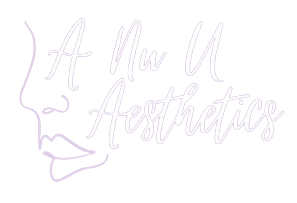ROSACEA in Congers, NY
ROSACEA Treatment in Congers
Rosacea is a common, chronic skin condition that affects up to 10 percent of the population, although many people are unaware that they have it. It usually affects the face, causing redness and the formation of small, pus-filled bumps similar to acne, and, like other skin conditions, can cause emotional distress for the patient. Rosacea typically affects fair-skinned women between 30 and 60 years of age. It can first appear during menopause, and is more prevalent in people with a family history of the condition. Although rosacea is a chronic condition that cannot be cured, there are several treatments available to relieve its symptoms and prevent flareups.
Triggers of Rosacea Symptoms
Rosacea symptoms, which tend to worsen periodically, can be triggered by the following:
- Hot or spicy food or drink
- Alcoholic beverages
- Extreme temperatures
- Hot baths or saunas
- Sunlight
- Anger, embarrassment or stress
- trenuous exercise
- Medications that dilate blood vessels
- Corticosteroids (such as prednisone)
Although the specific causes of rosacea are unknown, a combination of hereditary and environmental factors appears to be involved.
Symptoms of Rosacea
Symptoms of rosacea are usually visible on the nose, cheeks, mouth and forehead; they occasionally spread to the neck, chest, scalp or ears. Symptoms typically come and go, flaring up for weeks or months, and then fading for a period of time. They tend to worsen as the condition progresses, and are sometimes used to distinguish its four stages.
Pre-rosacea symptoms include frequent flushing or blushing, which progresses to a persistent redness on the face. Vascular rosacea symptoms involve the swelling of small blood vessels (commonly referred to as spider veins and, medically, as telangiectasia) around the nose and cheeks. Oily skin and dandruff are also common during this phase. Inflammatory rosacea is the stage during which small bumps or pustules begin to develop; they then spread across the nose, cheeks, forehead and chin. Late rosacea is the most advanced phase, during which all earlier symptoms intensify.
If left untreated, symptoms continue to worsen, and may cause permanent skin damage. Some patients develop a form of the disorder that affects the eyes (ocular rosacea), and which may, in severe cases, affect vision. The symptoms of rosacea may include the following:
- Redness
- Flushing or blushing easily
- Small red bumps or pustules
- Visible blood vessels
- Burning or stinging
- Dry, irritated eyes
- Red or swollen eyelids
In late rosacea, patients may develop a complication called rhinophyma in which facial tissue builds up and hardens, causing the nose to enlarge and become bulbous. This complication is more common in men than women and may require surgery.
Diagnosis and Treatment of Rosacea
Diagnosis of rosacea is typically made through a simple physical examination of the skin on the face. Sometimes tests are administered to rule out other possible causes, such as eczema or lupus. Although there is no cure for rosacea, several treatments are available to relieve symptoms. Through medical consultation, patients should be able to pinpoint at least some of their symptoms’ triggers, and learn to avoid them. It may be necessary for them to avoid the sun, spicy foods, alcoholic beverages, or certain medications. Participation in a stress-management program may also be recommended.
Using makeup to disguise rosacea helps many sufferers feel less self-conscious. Medical treatments, the use of which depends on the severity of the condition, may include the following:
- Topical ointments
- Oral medications
- FOTONA TIMEWALKER Laser therapy
- Electrosurgery
- If the patient is suffering from symptoms of ocular rosacea, oral antibiotics and steroid eye drops may be prescribed.
Eyelids can droop when Dysport injections are made in the glabellar region; they usually return to normal within 3 weeks. Side effects of Dysport injectable are the same as those of BOTOX Cosmetic.

